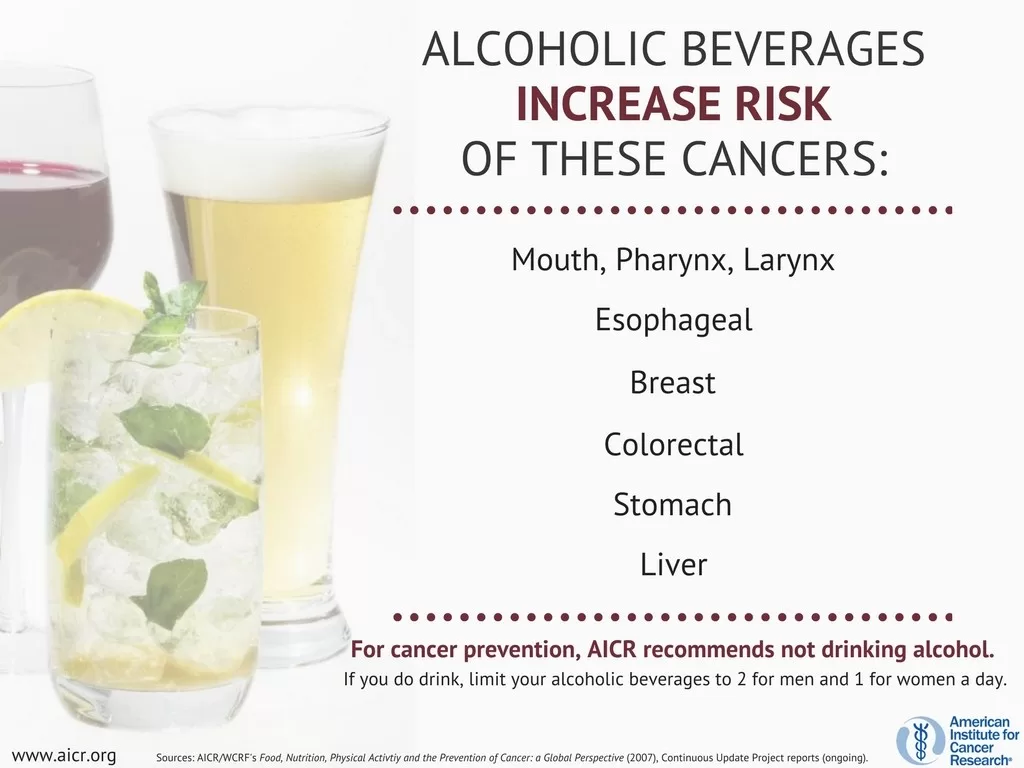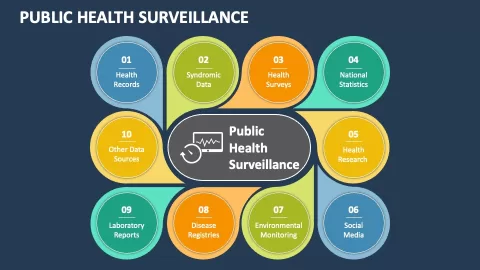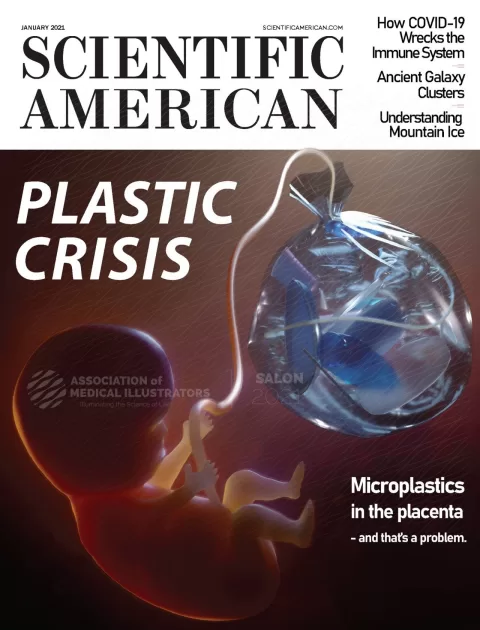The connection between alcohol and cancer risk has gained significant attention recently, following a stark advisory from the U.S. Surgeon General, Vivek Murthy. His announcement outlines the alarming reality that drinking alcohol raises the likelihood of developing seven types of cancer, such as breast and liver cancer. This alcohol cancer connection highlights the critical need for public awareness, as many remain uninformed about the health risks of alcohol consumption. In fact, alcohol is deemed the third leading preventable cause of cancer, responsible for approximately 100,000 cases annually in the U.S. To mitigate these dangers, moderated drinking benefits should be emphasized, and health warning labels need an urgent update to include cancer risks alongside existing warnings about pregnancy and machinery operation.
Exploring the link between alcoholic beverages and various forms of malignancies sheds light on an often-overlooked health issue. Recent guidance from health officials underscores how consuming spirits can elevate one’s chances of developing certain cancers, drawing attention to a persistent yet unrecognized threat. The Surgeon General’s focus on this matter reveals a noticeable gap in public knowledge regarding the dangers associated with drinking. Notably, as alcohol intake rises, so does the risk of encountering severe health issues, emphasizing the importance of moderation. This insight into the effects of alcoholic intake serves as a crucial reminder for many to reconsider their drinking habits for the sake of their health.
Understanding the Alcohol and Cancer Risk Connection
Recent advisories issued by U.S. Surgeon General Vivek Murthy have highlighted the alarming link between alcohol consumption and an increased risk of various cancers. Research indicates that alcohol is the third leading preventable cause of cancer in the United States, following tobacco and obesity. The Surgeon General’s report details evidence suggesting that roughly 100,000 cancer cases each year can be attributed to alcohol use, leading to around 20,000 cancer-related deaths annually. The types of cancer associated with alcohol consumption include breast, liver, mouth, throat, and colorectal cancers, underscoring the seriousness of this health issue.
Despite this critical information, many individuals remain unaware of the alcohol-cancer connection. During a discussion, Dr. Murthy emphasized the discrepancy between public awareness regarding the dangers of tobacco and the hazards linked to alcohol. Over the years, scientific consensus on the relationship between alcohol consumption and cancer has become increasingly clear, yet fewer than half of Americans recognize this risk. By increasing awareness through public health messages and more informative labeling, individuals can make more educated decisions about their drinking habits, potentially reducing their cancer risk.
Surgeon General’s Call for Health Warning Labels
In light of the concerning data regarding alcohol and its health risks, Surgeon General Murthy has called for the implementation of updated health warning labels on alcoholic beverages. Currently, these labels advise against drinking during pregnancy and while operating machinery but fail to mention the cancer risks associated with alcohol consumption. Murthy asserts that informing the public about these risks is crucial for encouraging changes in behavior that can lead to better health outcomes. The movement for more comprehensive warning labels draws parallels to the extensive information that has been communicated about the dangers of smoking.
Murthy’s advocacy for labeling changes stems from the recognition that many people are unaware of their personal risks when it comes to alcohol consumption. He argues that by re-framing alcohol education to include the cancer connection, it will resonate more effectively with individuals who may not be conscious of how their drinking habits affect their long-term health. The Surgeon General’s position aims to promote a culture of transparency regarding the health consequences of alcohol, pushing for greater public health advocacy and more informed choices among consumers.
Types of Cancer Associated with Alcohol Consumption
The relationship between alcohol intake and certain types of cancer is well-documented and continues to be a focal point of health advisories. According to the recent advisory by the U.S. Surgeon General, alcohol consumption can contribute to the development of cancers including breast, colorectal, liver, esophageal, and oral cancers. Each of these cancers has varying levels of risk associated with different amounts of alcohol consumption, illustrating the nuanced dangers of drinking. For example, women who regularly consume large amounts of alcohol are at a heightened risk for breast cancer, serving as a critical reminder of the specific vulnerabilities linked to gender and alcohol consumption.
Furthermore, the mechanisms by which alcohol increases cancer risk are multifaceted. Alcohol can convert into acetaldehyde, a toxic compound that can damage DNA and hinder the body’s ability to repair that damage. Additionally, alcohol can impact hormone levels and interfere with nutrient absorption, both of which can play roles in cancer development. The Surgeon General’s findings point out that by reducing alcohol intake, one can minimize the risk of these cancers, reaffirming that moderation is a key aspect of healthy living.
Moderated Drinking Benefits and Their Implications
While the Surgeon General advocates for a focus on the risks associated with alcohol, there is also a discussion around moderated drinking benefits. Evidence suggests that moderate alcohol consumption may have some health benefits, such as reduced risk of cardiovascular disease. However, the fine line between moderation and heavy drinking must be acknowledged, as the risks associated with excessive alcohol consumption outweigh any potential benefits. For many, understanding what constitutes moderate drinking can help delineate a safer approach to alcohol consumption.
The emphasis on moderated drinking serves as a recommendation for healthier choices. Individuals are encouraged not only to keep track of their alcohol intake but also to be cognizant of their overall lifestyle and health conditions, as these factors can greatly influence the safe levels of alcohol consumption. By fostering a culture that promotes moderation, individuals can still enjoy alcohol while being aware of the associated health risks, essentially aligning enjoyment of social libations with health consciousness.
Health Risks of Alcohol Beyond Cancer
In addition to the cancer risks highlighted by the Surgeon General, alcohol consumption is connected with various health concerns that extend beyond oncology. Excessive drinking can lead to liver disease, cardiovascular problems, and mental health issues, creating a comprehensive picture of the potential hazards of alcohol use. The Surgeon General’s advisory seeks to educate the public not only about cancer risk but also about these other health problems that can arise from habitual alcohol consumption.
Moreover, alcohol’s interaction with prescription medications is often overlooked, posing additional health risks for those who may not consider how alcohol affects their overall well-being. It’s crucial for individuals to be educated about the interdisciplinary nature of alcohol’s risks, understanding that health issues can manifest in a variety of ways, from addiction to physical ailments. By addressing the broader spectrum of health risks, public health campaigns can more effectively engage consumers in conversations about responsible alcohol use and informed decision-making.
The Role of Public Health Messaging
The importance of effective public health messaging cannot be overstated when it comes to issues like the alcohol-cancer connection. Surgeon General Murthy’s recent advisory showcases a proactive approach to raising awareness, akin to historical public health campaigns regarding tobacco. By utilizing multiple information channels, health officials aim to reach diverse audiences with messages that resonate and educate. This ongoing education is paramount in dispelling myths surrounding alcohol and its health impacts, ultimately moving towards more informed public perceptions.
As social media and other platforms proliferate, the challenge for public health officials is to ensure that accurate, science-based information about alcohol and its health risks is widely disseminated. Engaging content that highlights the dangers of heavy drinking, the importance of moderation, and the link to various diseases can be more impactful if tailored to specific demographics. Education in this realm is vital to fostering a knowledgeable public that can make better choices regarding their alcohol consumption and health.
Moving Toward Responsible Drinking Practices
In response to the complexities surrounding alcohol consumption, moving towards responsible drinking practices is essential. This includes understanding personal limits and recognizing the signs of overindulgence. The Surgeon General’s advisory highlights that less is often better when it comes to reducing cancer risks, advocating for individuals to evaluate their drinking patterns critically. By setting personal goals regarding alcohol intake, individuals can create healthier habits that contribute to their overall well-being.
Encouraging community discussions about drinking culture is another critical step in promoting responsible practices. Whether through social gatherings or educational forums, reframing the conversation around alcohol to focus on moderation, awareness, and health can lead to meaningful change. Social norms can either reinforce harmful drinking patterns or foster a culture of health-conscious choices, making community dialogue an essential component of public health efforts.
Engaging the New Generation in Alcohol Awareness
As the landscape of youth and alcohol consumption evolves, it’s vital to engage younger generations in discussions about the risks associated with drinking. With social media platforms serving as influential avenues for information dissemination, creating targeted messages that resonate with young adults can play a crucial role in prevention. Educational campaigns that highlight the alcohol-cancer connection, alongside other health risks, can provide a foundation for more responsible drinking behaviors in the future.
Moreover, peer influences play a significant role in shaping young people’s attitudes toward alcohol. Empowering individuals to be advocates for health within their social circles can facilitate a shift in how alcohol consumption is perceived among peers. By making informed choices and sharing knowledge, the younger generation can help to dismantle the stigma around discussing alcohol consumption openly and foster an environment that values responsibility.
Future Directions in Alcohol Research and Policy
Looking ahead, the relationship between alcohol and cancer, as well as other health risks, will remain a vital area of research. Ongoing studies are necessary to further quantify the associations and refine recommendations for alcohol consumption. As health experts continue to compile data on alcohol-related health issues, informed policy decisions can be made to improve public health initiatives. This research is essential for crafting effective interventions and educational programs that can effectively address the complexities of alcohol use.
In addition to research, there is an urgent need for policies that reflect current scientific understanding of alcohol risks. Regulations around labeling, advertising, and marketing for alcoholic beverages must adapt to include comprehensive health information, including cancer risks. Additionally, these policies can encourage responsible drinking practices and enhance public knowledge, ultimately working toward reducing the threat that alcohol poses to public health.
Frequently Asked Questions
What is the alcohol cancer connection as described by health authorities?
The alcohol cancer connection refers to the strong link established by health authorities, including the U.S. Surgeon General, indicating that alcohol consumption increases the risk of several cancers, including breast, colorectal, esophagus, liver, mouth, throat, and larynx cancers.
What types of cancer are associated with alcohol consumption?
Drinking alcohol is associated with an increased risk of seven types of cancer: breast, colorectal, esophagus, liver, mouth, throat, and voice box (larynx). These findings have been underscored in recent advisories from public health officials.
What has the U.S. Surgeon General said about the health risks of alcohol?
The U.S. Surgeon General has highlighted that alcohol is the third leading preventable cause of cancer, responsible for approximately 100,000 cancer cases and 20,000 deaths annually in the United States, emphasizing the need for health warning labels on alcoholic beverages to inform consumers of these risks.
What are the moderated drinking benefits concerning cancer risk?
Moderated drinking benefits involve reducing alcohol consumption to lower the risk of developing alcohol-related cancers. Public health experts suggest that consuming alcohol in moderation can lead to a decreased likelihood of facing health hazards, including various types of cancer.
What changes are being considered for the Surgeon General’s alcohol warning label?
The Surgeon General is advocating for updates to the current alcohol warning label to include information about the cancer risks associated with alcohol consumption, aiming to better inform the public about the health risks of alcohol beyond what is currently mentioned.
How does higher alcohol consumption correlate with cancer risk?
Higher alcohol consumption is directly correlated with an increased risk of developing certain cancers. The U.S. Surgeon General noted that as drinking levels increase, so does the likelihood of facing health complications, particularly various cancers.
Is there a recommended level of alcohol consumption to minimize cancer risk?
Public health officials recommend that less alcohol consumption is better for reducing cancer risk, although the exact safe levels vary individually based on personal health factors. Moderation is key to minimizing health risks associated with alcohol.
Why is public awareness of the alcohol cancer connection important?
Public awareness of the alcohol cancer connection is crucial as many individuals are unaware of the significant risks involved with alcohol consumption. Greater knowledge can lead to informed decisions about drinking habits, ultimately promoting better health outcomes.
| Key Point | Details |
|---|---|
| Surgeon General’s Advisory | Drinking alcohol raises cancer risk and requires public awareness. |
| Cancer Types Linked to Alcohol | Breast, colorectal, esophagus, liver, mouth, throat, and voice box (larynx). |
| Annual Statistics | Approximately 100,000 cancer cases and 20,000 deaths in the U.S. yearly due to alcohol. |
| Public Awareness | Most people are unaware of the link between alcohol and cancer compared to tobacco. |
| Recommendation for Warning Labels | Surgeon General calls for updated warning labels on alcoholic beverages to include cancer risks. |
| Moderation in Drinking | Less alcohol consumption is better for reducing cancer risk. |
| Future Public Health Messaging | Public health messaging should adapt to inform about alcohol and cancer risk effectively. |
Summary
Alcohol and cancer risk are critical issues highlighted by Surgeon General Vivek Murthy, who has emphasized that alcohol consumption increases the risk of seven types of cancer. His recent advisory aims to raise public awareness and calls for better labeling on alcoholic beverages to warn consumers about this important health risk. With an acknowledgment that alcohol is a significant contributor to cancer cases and deaths, it is vital to promote moderation in drinking habits to mitigate these health risks.
The content provided on this blog (e.g., symptom descriptions, health tips, or general advice) is for informational purposes only and is not a substitute for professional medical advice, diagnosis, or treatment. Always seek the guidance of your physician or other qualified healthcare provider with any questions you may have regarding a medical condition. Never disregard professional medical advice or delay seeking it because of something you have read on this website. If you believe you may have a medical emergency, call your doctor or emergency services immediately. Reliance on any information provided by this blog is solely at your own risk.






